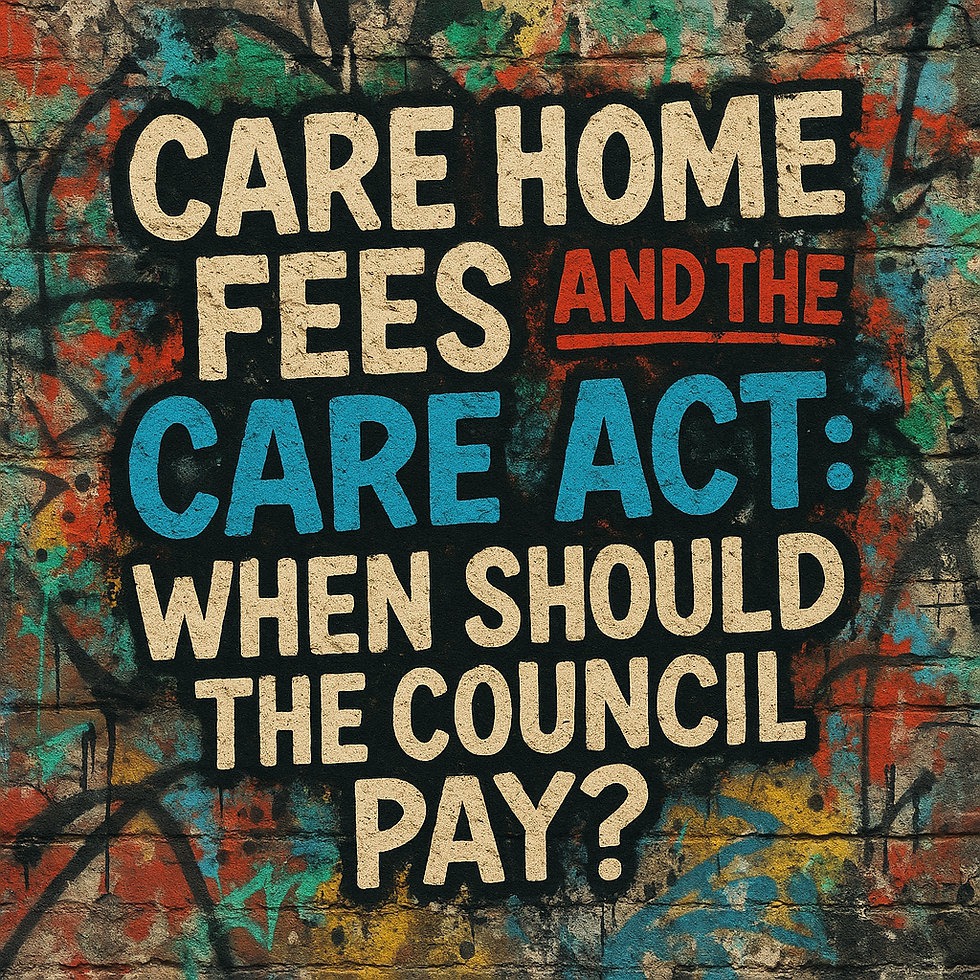Essential caregivers and their rights during the Covid-19 pandemic
- Team Nellie

- May 5, 2021
- 3 min read
Updated: Apr 21, 2023
Firstly, what is an essential caregiver? This is a question that has been highlighted within the pandemic, with essential caregivers being withheld from providing love and support to their family members during the most challenging times.
Government guidance established the role of an Essential Caregiver in visiting care homes in March (2020) at the beginning of the Covid-19 pandemic. The role of an essential caregiver acknowledges that some care home residents may require additional support from relatives or friends. The role allows relatives/friends to visit for longer and more frequently, with the opportunity to enter the resident's room and provide close contact. We know essential caregivers can provide both personal and emotional support if it is in the resident's best interests; this can include supporting the resident to feed themselves and help them in distressing times.
Care homes should take a pro-active approach to determine if a resident needs an essential caregiver. To facilitate caregivers' access into care homes, individual risk assessments need to be carried out to identify the resident's needs. These risk assessments will include the benefits of a caregiver focusing on the rights and requirements of the resident. A holistic assessment needs to be carried out involving the residents' views and the residents' relatives/friends.
Not everyone has the best interests of the resident in mind when carrying out these assessments. Therefore, care home providers need to consider those who may lack capacity and how support may be essential in helping them to express their views. In addition, a service user's vulnerability may be taken advantage of within these assessments. To prevent this, care homes should consider any personal representatives of the resident (a Deprivation of Liberty authorisation and/or Lasting Power of Attorney).
It is believed by many that essential caregivers are only allowed to support residents when their health is in immediate danger. This is incorrect. The Government Guidance expresses how the purpose of an essential caregiver is to be present and provide care that is paramount to the resident's health and wellbeing. Meaning that caregivers are not just there for immediate care but also emotional and mental support.
Issues Essential Caregivers have been facing:
- Visits being stopped.
- Visits being time-limited.
- The resident and family/representative not being involved in the initial assessment.
- Thinking their role as an essential caregiver can be removed once the resident's wellbeing has improved.
- Being told the essential caregiver needs to be the same person as the resident's nominated person.
- Having to chase care homes to facilitate the role of an essential caregiver.
Can my essential caregiver visits be stopped if there is another lockdown?
The government guidance states that even if there is another covid-19 outbreak, essential caregiver visits continue as long as they follow strict covid-19 safety guidelines and undergo a testing regime.
Are my essential caregiver visits time limited?
Essential caregiver visits should not be time-limited. The government guidance highlights the importance of essential caregiver visits, as they support the wellbeing of the resident. Therefore, the care provided within essential caregiver visits should not be time-specific.
The care home assessed the resident as not requiring an essential giver?
If an initial assessment of the individual completed without the opinion of the resident or their family, then the assessment needs to be repeated. In addition, government guidance states that an individual's needs are likely to change over time. Therefore decisions surrounding the need for an essential caregiver need to be reconsidered if the residents' needs/ requirements change.
Can I be an essential caregiver if I did not have a similar role before the pandemic?
Government guidance voices that it's likely someone would have extra support listed within their care plan, which is not a condition of an essential caregiver's visit. The Government guidance identifies an individual's needs are likely to change over time. Previously, they may have not required extra support from relatives/friends; because of this, an assessment needs to be carried out based on their current needs and wishes.
Can I be an essential caregiver if I am not the resident's nominated visitor?
The government guidance stresses that the role of an essential caregiver is in addition to a nominated visitor; therefore, it does not have to be the same person.
My care home does not offer anyone the role of an essential caregiver.
Care homes should be promoting the role of an essential caregiver. Government guidance stresses the importance of carrying out individual assessments to decide if a resident needs an essential caregiver. Under the Equality Act (2010) and Human Rights Act (1998), assessments are required to be based wholly on one individual, as all residents have specific needs.




Comments